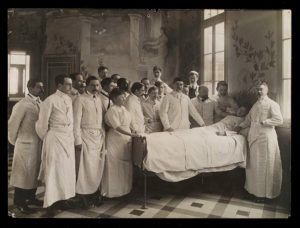 Doing Harm by Maya Dusenbery, a new book recently reviewed in the New York Times by Parul Sehgal, is a rich collection of studies and statistics that reveal sexism at every level of medicine. Sehgal notes that the core message of the author is that the ancient distrust of women to be reliable narrators of their own experiences or their bodily pain is linked to the current “believe women” moment we are in as more speak out in the “Me Too” movement. The author also points out that this suppression of women’s voices is linked to how frequently women get interrupted in meetings and how rarely women are quoted as experts. Women’s voices are ignored or belittled and, in addition to the other challenges we face, this dynamic impacts our ability to get good medical care. Dusenbery offers multiple examples to make her point:
Doing Harm by Maya Dusenbery, a new book recently reviewed in the New York Times by Parul Sehgal, is a rich collection of studies and statistics that reveal sexism at every level of medicine. Sehgal notes that the core message of the author is that the ancient distrust of women to be reliable narrators of their own experiences or their bodily pain is linked to the current “believe women” moment we are in as more speak out in the “Me Too” movement. The author also points out that this suppression of women’s voices is linked to how frequently women get interrupted in meetings and how rarely women are quoted as experts. Women’s voices are ignored or belittled and, in addition to the other challenges we face, this dynamic impacts our ability to get good medical care. Dusenbery offers multiple examples to make her point:
- Women with abdominal pain wait in emergency rooms for sixty-five minutes compared to forty-nine minutes for men.
- Young women are seven times more likely to be sent home from the hospital while in the middle of a heart attack.
- Doctors rarely communicate (or understand) how drugs from aspirin to antidepressants affect women and men differently.
- Autoimmune disorders have been understudied because a majority of the patients are women.
- Women are consistently undertreated for pain: male patients are given pain relief while women are given sedatives and told their pain is emotional.
- For women of color, especially black women, the situation is worse. Black patients are twenty-two times less likely to get any kind of pain relief in emergency rooms.